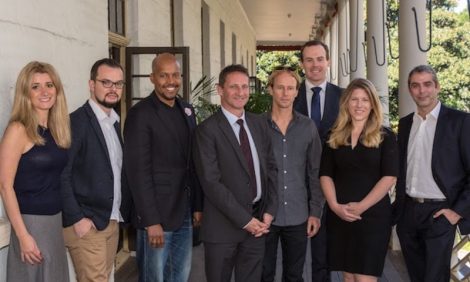
Budget Impact: How Australian small businesses fared

Australia’s small businesses would have been paying close attention to the Federal Budget last night — after all, for the past two years, we have seen some good incentives for the sector. This year’s Budget was similar, with Treasurer Scott Morrison placing a strong focus on creating the “right environment” for Australia’s 2.1 million small businesses.
The policies and budget measures outlined last night will do exactly that: small businesses with a turnover up to $10 million will have their company tax rate cut to 27.5 per cent in 2016–17, the lowest level in 50 years. The $20,000 instant asset write-off for equipment expenses has been extended another 12 months, and the Government will offer a $300 million incentive for state governments to cut red tape and use technology to provide more effective and efficient regulation.
Xero in on the Budget
On the morning after the Budget, we sat down with Business Insider Australia and industry leaders from Xero, PayPal, OFX, Salesforce and Basic Bananas to unpack what it all means for Australia’s small businesses.
Hosted by Paul Colgan, Business Insider Australia’s Editor and Publisher, the panel agreed that while this Budget was sensible and a step in the right direction, there were opportunities missed.
The Budget had a retro feel, said Matt Prouse, Solutions Manager from Xero: “It was, in parts, reminiscent of an ‘80s or ‘90s flashback. There was a strong focus on railways and roads. There wasn’t a single mention of the NBN in the whole Budget”.
Anneliese Urquhart, Small Business Director from Xero, agreed: “The lack of conversation around innovation and startups was a glaring omission”.
For Salesforce’s VP for Innovation & Digital Transformation, Robert Wickham, the government missed an opportunity to tell a compelling story around why innovation is important for everyone in Australia — not just the banks and businesses. OFX’s Head of Corporate Dealing, Michael Judge, was cautious, believing the Budget had “too much focus on government spending, and not enough around how we’re future-proofing for generations to come”.
Innovation nation
All panelists asked the question: what happened to Turnbull’s call for an innovation nation, or ideas boom? Maybe the innovation is not quite so explicit and rather the policies announced will lead to new innovations. Matt hoped the change in GST treatment for digital currencies like Bitcoin will help foster fintech innovation in Australia.
Simon Edwards, Director of Government Relations at PayPal, felt the Budget was pragmatic: “It’s going to get the big problems out of the way first, then dive into innovation”.
There have been claims that the Coalition’s Budget looks a lot like something Labor would have pushed out. Edwards was of the view that maybe this is to foster collaboration between parties before moving on to tackle wider issues on health, education and innovation that have been clogged up by politicking.
Small business incentives
An overarching theme throughout the discussion was the difficulty for small businesses to do two key things: access talent and scale their business.
Access to overseas talent is going to prove difficult for small businesses over the next 12 months as a result of some of the plans outlined. The 457 temporary skilled visa scheme used by many companies to hire skilled workers has been abolished and replaced with a two-tier system. And the government will replace the requirement for a 1% training expense based on business revenue with an annual foreign worker levy of $1,200 or $1,800 per worker per year on temporary work visas and a $3,000 or $5,000 one-off levy for those on a permanent skilled visa.
“I came here on a 457 visa a number of years ago,” Robert Wickham from Salesforce told panelists. “We looked at the quality of life here. Do these other policies today make Australia an appealing place for foreign workers? I can see the changes in 457 causing anxiety to the small business community in Australia. More needs to be done.”
Christo Hall, founder of Basic Bananas, was taken aback by the changes. “I think small businesses will find a way around this,” he said. “Rather than bringing the talent here, I can see them outsourcing to offshore talent.”
Trent Innes, Xero’s MD in Australia, agrees with this sentiment. In an op-ed for Huffington Post last month, he noted that a worst case scenario “would force some of these innovative and growth-creating jobs offshore, to their offices in the U.S. or Europe. It’s hard to see how that would benefit anyone in Australia.”
The need for growth
For small businesses to scale, Anneliese Urquhart from Xero said there needed to be more policies to cut red tape, and more awareness of the tech available to “help small businesses find efficiency gains through smarter use of software”.
Robert Wickham told panelists the lack of innovation chat will have caused some concern for Australia’s small businesses’ ability to scale: “the Budget should have acknowledged that technology is a big enabler of capacity — from using data to help boost loyalty to using artificial intelligence to ensure that your business has empathy.”
However, he is optimistic that our government is still committed to innovation. “I want to see the government help Australia’s small businesses scale.”
Simon Edwards from PayPal posed the question: What comes next? What’s the next point of debate?
“My concern is that it’ll be a funding auction between health, education, welfare and what have you,” he said. “The Government must accept a world of uncertainty where innovation and change are constant.”
Overall, the Budget is a step in the right direction for small businesses, but more needs to be done.
“We were looking for more measures to grow Australia’s market,” Anneliese Urquhart said. “We’re missing measures to help small businesses scale, access global markets, and access better software. We need environments where Australia’s small businesses can thrive.”
The post Budget Impact: How Australian small businesses fared appeared first on Xero Blog.
Source: Xero Blog






